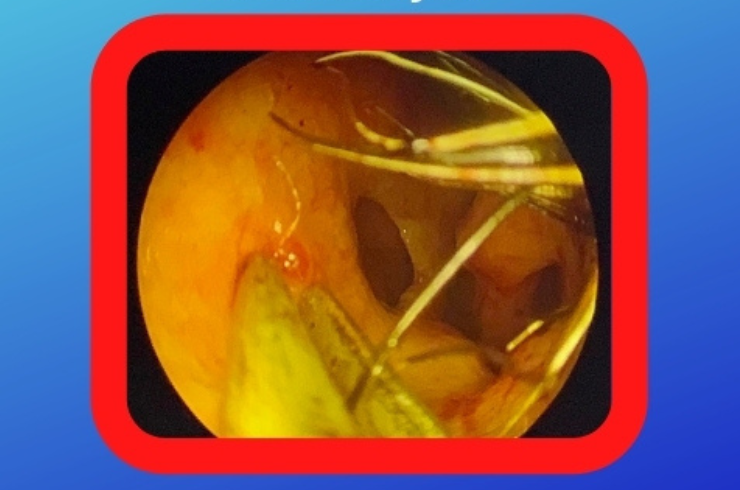Nose Bleeding (Epistaxis) Treatment at Asian ENT Care Centre, Hyderabad
Nosebleeds, or epistaxis, are a common issue that can affect people of all ages. While they can be alarming, they are often harmless and can be easily treated. However, in some cases, frequent or severe nosebleeds can indicate an underlying health problem that requires medical attention.
At Asian ENT Care Centre in Hyderabad, we offer expert diagnosis and treatment for all types of nosebleeds. Whether it’s a minor, occasional bleed or a chronic issue, our team of experienced ENT specialists is here to help.
Causes of Nose Bleeding
Nosebleeds can occur for a variety of reasons. Some common causes include:
- Dry Air: Dry weather, particularly during the winter months, can dry out the nasal passages, leading to cracks and bleeding.
- Nasal Trauma: Injury to the nose from accidents, blows, or even excessive rubbing can result in a nosebleed.
- Allergies: Allergic reactions can cause inflammation in the nasal passages, leading to increased vulnerability to bleeding.
- Infections: Conditions like the common cold or sinus infections can cause nasal congestion and irritation, leading to nosebleeds.
- Medications: Certain medications, such as blood thinners or nasal decongestant sprays, can increase the risk of nosebleeds.
- Structural Issues: Problems such as a deviated septum can increase the likelihood of nosebleeds.
- Underlying Health Conditions: Conditions like bleeding disorders or high blood pressure can make individuals more prone to frequent nosebleeds.
Symptoms of Nose Bleeding
Nosebleeds may present with the following symptoms:
- Bleeding from one or both nostrils
- A sensation of blood dripping down the back of the throat (posterior nosebleed)
- Difficulty stopping the bleeding
- Swelling or irritation in the nasal passages
- Dizziness or lightheadedness (in severe cases)
Types of Nosebleeds
Nosebleeds can be categorized into two types:
Anterior Nosebleeds: This is the most common type of nosebleed, where the bleeding occurs from the blood vessels in the front part of the nose. Anterior nosebleeds are typically easy to manage and usually stop on their own or with simple at-home care.
Posterior Nosebleeds: These are less common but more serious. The bleeding originates from deeper blood vessels at the back of the nose and can result in heavier bleeding. Posterior nosebleeds may require medical intervention to control the bleeding.
Diagnosis of Nosebleeds
To diagnose the cause of recurrent or severe nosebleeds, an ENT specialist will perform the following:
- Physical Examination: The doctor will examine the inside of your nose using a nasal speculum and a lighted instrument to locate the source of bleeding.
- Medical History Review: Your doctor will ask about any medical conditions, medications, or injuries that may contribute to your nosebleeds.
- Nasal Endoscopy: In some cases, a more detailed examination of the nasal passages with a flexible endoscope may be recommended to assess the structures inside your nose.
Treatment for Nose Bleeding
Treatment for nosebleeds depends on the severity and underlying cause. Common treatments include:
Home Remedies (for mild or occasional nosebleeds)
- Pinching the nostrils: Pinch the nostrils together while leaning slightly forward. This helps to apply pressure to the bleeding vessels and allows them to clot.
- Using a humidifier: Keeping the air moist can help prevent the nasal passages from drying out, especially in dry environments.
- Applying a saline nasal spray: This can help moisturize the nasal passages and prevent dryness.
- Avoiding blowing the nose: After a nosebleed, avoid blowing your nose forcefully, as this can reopen the blood vessels.
Medical Treatment (for more severe or recurrent nosebleeds)
- Cauterization: For persistent anterior nosebleeds, the doctor may use a chemical or electric cautery to seal the bleeding vessels.
- Nasal Packing: In some cases, a nasal tampon or gauze may be inserted into the nose to stop bleeding, particularly in posterior nosebleeds.
- Steroid Nasal Sprays: These can help reduce inflammation in the nasal passages and prevent further bleeding, especially in cases linked to allergies or chronic sinus issues.
- Surgical Intervention: In rare cases, when nosebleeds are caused by structural issues like a deviated septum or vascular malformations, surgery may be required to correct the problem.
When to See a Doctor
While most nosebleeds are minor and resolve on their own, it’s important to seek medical attention if:
- The bleeding lasts more than 20 minutes despite trying home remedies.
- The nosebleed is associated with severe pain, swelling, or difficulty breathing.
- You experience frequent or recurrent nosebleeds.
- You have high blood pressure, a bleeding disorder, or are on blood-thinning medications that could complicate the situation.
Prevention of Nose Bleeding
To prevent nosebleeds from occurring, consider the following:
- Use a humidifier at home to keep the air moist, especially during the winter months.
- Apply a saline nasal spray regularly to keep your nasal passages hydrated.
- Avoid excessive nose picking or rubbing of the nose, which can damage the delicate blood vessels inside the nostrils.
- Stay hydrated and avoid environments that are excessively dry.
- Use allergy medications or treatments as prescribed by your doctor to control allergic rhinitis that may contribute to nasal irritation.
Why Choose Asian ENT Care Centre?
At Asian ENT Care Centre, we provide comprehensive care for nosebleeds, from diagnosis to treatment. Our experienced ENT specialists offer personalized solutions tailored to your needs. We ensure that your nosebleeds are treated effectively and preventatively, with a focus on your overall health and comfort.
Book an Appointment Today!
If you’re experiencing frequent or severe nosebleeds, don’t wait. Contact Asian ENT Care Centre in Hyderabad to schedule an appointment with our expert ENT specialists. We are here to help you manage your symptoms and get back to feeling your best.
